It's a Matter of Attention“Can I have your attention, please?”
It’s the plea by virtually every public address announcer prior to an important message. It’s the call to order in many classrooms across the country prior to instruction beginning. It’s often even the request of flight attendants leading into the instructions before takeoff. Of course, it’s not only the public address announcers, classroom teachers, and flight attendants that are beckoning for our attention. Our jobs, families, and friends all want a piece of it too. That doesn’t even take into account the attention things like our phones, computers, and televisions clamor for. We have just as many internal calls for attention: our ego, our insecurities, and our emotions to name a few. There’s certainly no shortage of options in which to pour our attention. This choice, where to guide our attention, will have a significant impact on the direction of our life. Why Should We Care? See, what gets our attention grows. If we give our attention to our job, we get promotions. If we give our attention to our family, we grow our relationships with our spouse and kids. If we give our attention to our friends, we share in numerous experiences together that bring us joy. If it seems simple, that’s because it is. If our attention is devoted to the apps on our phones, Netflix series, or favorite YouTube videos the direction of our life will look starkly different than if our attention is given to serving others, maximizing our potential, or honoring the gifts we’ve been given. We make choices, then our choices make us. Understanding the simplicity of the matter is important. As long as we remain indifferent, or unaware, with regards to our attention we will be prisoners of our circumstances and the people around us. By becoming intentional with what we choose to give our attention to we take control of our lives and create a consistency we can build on. REAL TALK - Action Steps As simple as it seems, directing our attention is very difficult to do consistently. There are multi-million dollar marketing companies with the sole mission of diverting it. The first step to taking control of our attention is eliminating the things that should get none of it. The external ones are fairly obvious, some of which were mentioned above, so we’ll focus on a few of the internal draws for our attention that become unintentional and destructive quickly. Here are a few to begin with:
Our attention is one of our most precious gifts. It’s how we express love and how we demonstrate our priorities. The allotment is limited however, and if we don’t choose intentionally others will choose for us. Checkout Surrender the Outcome on Amazon and order The Score That Matters with Ryan Hawk & Brook Cupps before its release in March 2024. The latest blog from Blue Collar Grit can be found here!
0 Comments
Home BaseOne of my favorite games growing up was Hide and Seek. If you’re not familiar, sorry - you missed out on a lot of great times in your childhood. Hunkering down in the dark in hopes that whoever was “It” couldn’t find you never failed to generate just the right amount of butterflies to keep you nervous and excited at the same time.
One of the key aspects of the game was the designation of a safe place where everyone hiding was trying to return safely to. We called this place “Home”. If the person who was “It” found you hiding, you could make a run for “Home”. Making it back to “Home” without being tagged was the only way to ensure that you weren’t “It” the next round. The goal each round is always to return “Home” safely. Just like in Hide and Seek, we need to know where home is in our lives too. Physically, of course, but mentally as well. Why Should We Care? I’ve noticed a growing number of teenagers, though I’m confident it’s not limited to this age group, that have an increasingly hard time regulating their emotions. The slightest adversity or failure sends them into a tailspin they struggle to recover from. They think it’s the adversity that’s creating the issue for them, when it really has little to do with their circumstances at all. The absence of “Home” is the issue. Without a clear understanding of what “Home” is, we have no guide for our actions. They simply become the result of our emotions. Feel mad, act mad. Feel irritated, act irritated. Feel happy, act happy. On the surface that may not seem like a significant issue, even normal, but our ability to regulate our emotions plays a major role in our ability to be our best and to lead. Knowing where “Home” is allows us to control the narrative that drives our emotions. The only difference between love and indifference is the story we create regarding the circumstance. Tell ourselves a story of value and appreciation, love follows. Tell ourselves a story of futility and uselessness, indifference shows up. Our “Home” is reflected in our actions. If our actions are consistent, regardless of whether others agree with them or not, then it’s likely we know where “Home” is. If our actions vary from situation to situation, then there is a good chance we are still unclear on “Home”. Most turn to their faith and values as their “Home”, but often stray when circumstances challenge their beliefs. It’s not enough to know where home is, we must be faithful in returning to it. The effectiveness of our leadership depends on it. REAL TALK - Action Steps Just like in a good game of Hide and Seek, we are all trying to make it “Home” safely. Some of us get there quickly and some of us hide for a long time before making it “Home”. In either case, here are a few questions to consider as you identify exactly what “Home” is to you.
Our emotions are not dependent on our circumstances. In order to live in this manner daily, we must have a clear picture of where “Home” is. Choose your story in order to choose your life. Checkout Surrender the Outcome on Amazon and order The Score That Matters with Ryan Hawk & Brook Cupps before its release in March 2024. The latest blog from Blue Collar Grit can be found here! The Difference Between "Of" & "To"When you point a finger at someone you have three pointing back at you. At some point in my childhood, wise counsel shared this surprising reality with me and I’ve never forgotten it. Of course, that doesn’t mean I’ve always refrained from passing blame … but I do try not to point when doing it.
The advice comes in many forms from virtually every high achiever we read about, but does that really match what we see? In the news we don’t have to look far to find people that have seemingly ‘made it’ to well paying, highly sought after jobs who seem very accustomed to pointing fingers. It almost seems like the shirking of responsibility is one of the privileges status and power offers. Why Should We Care? Arrival is a dangerous belief. It can change the way we see everything we do and transform why we do them. When we transition to mentioning our process in the past tense we are only a few steps away from falling victim to the pointing finger. What we fail to realize is that the mission is to be on a path of excellence, not a path to excellence. It’s not a place we get to or something we obtain. It’s a way of doing things, a process we have committed to. It’s a way of life. When we realize this, where responsibility falls becomes crystal clear. It’s always our fault. And, even if it’s not, we’ll take it. On the path of excellence we understand whatever situation we’re in isn’t nearly as important as how we handle it. We are married to the process and surrendered to whatever result that process may yield. On the path to excellence we are consumed with the outcome of the situation and will handle it in whatever way will produce the best result. We are married to the result and will manipulate the process as much as necessary to achieve it. We become a slave to results, regardless of our beliefs and values. The difference may seem minor, or a matter of semantics, but it’s anything but insignificant. It’s a matter of who we are versus where we’re going. REAL TALK - Action Steps Accepting responsibility is openly encouraged and privately avoided. There are things those on the path of excellence choose to do to enhance their willingness to prioritize the process over the result. Here are a few to consider:
The path of excellence offers benefits that the path to excellence never could. It colors all aspects of our life while providing fulfillment regardless of the outcomes we experience. The path to excellence is one dimensional and offers nothing more than a moment of bliss followed by the emptiness of what’s next. Checkout Surrender the Outcome on Amazon and order The Score That Matters with Ryan Hawk & Brook Cupps before its release in March 2024. The latest blog from Blue Collar Grit can be found here! Complaining & ExplainingWhile growing up as a basketball player in rural Ohio in the early 90’s I would regularly make my way to nearby towns in order to find competition. In those days, pick-up games provided the perfect opportunity to grow your game. Pick-up basketball is one of the more significant casualties of the sport over the years. Organized adult leagues and tournaments have virtually made pick-up basketball extinct. And, along with it, all the benefits it provided.
Pick-up games were the ultimate laboratory for a developing player. You learned what you were good at, what you weren’t, and to what you were good at. If you couldn’t follow that formula, you just didn’t get picked. You learned to compete regardless of the score. If you weren’t willing to do that, you just didn’t get picked. You learned every team needs role players and they were just as important as the guy scoring all the points. If you weren’t willing to accept a role, you just didn’t get picked. No one cared if you sat on the sideline for ten straight games. If you couldn’t help the team win, you didn’t play. It didn’t matter if you were five years younger, six inches shorter, or fifty pounds overweight; if you could help the team win, you had a spot. And, no amount of complaining or explaining would change it. Why Should We Care? Life doesn’t care about our complaints. The time and effort we spend crafting our complaint is pointless. It never improves the situation or lifts the morale of those involved. Our complaining actually exacerbates the situation and corrodes morale. Saying nothing is far superior than spewing complaints. At no point in history has anyone ever walked away from someone complaining and said, “Man, I’m so glad I was able to hear all of his complaints.” It’s verbal puke. Life doesn’t care about your explanations either. Explanations are deemed necessary only when our actions don’t produce the desired results. Think about it, when we achieve the desired outcome no explanation is needed. It’s only when we fail that we search for explanations to justify our failure. Even if we convince those we are explaining to, what’s the benefit to come from it? Nothing. The result remains the same. Far better to save our energy we pour into explaining and redirect it in our next effort to do. REAL TALK - Action Steps Understanding we should avoid complaining and explaining is one thing. Eliminating them from our life is another. There is nothing easy about erasing these habits. Awareness, commitment, and intentionality are critical to empowering this change. Here are a few aspects of each to keep in mind throughout the process.
Much like a sugary soda, complaining and explaining, are sweet in the mouth at the moment. However, the daily surrender of our discipline to our feelings will ultimately cost us far more than we want to give. Checkout Surrender the Outcome on Amazon and order The Score That Matters with Ryan Hawk & Brook Cupps before its release in March 2024. The latest blog from Blue Collar Grit can be found here! Courage CastersI’m not a big reality TV fan.
It seems to me that a lot of the “real-life” conversations and activities are anything but “real-life”. However, I am intrigued by the performance-based reality shows. Contests like “The Voice” and “America’s Got Talent” are appealing because of the vulnerability they require. Most of the participants on these shows are not trained performers. Sure, some have performed at their local church or with their garage band, but they are basically newbies when it comes to the bright lights. All walks of life are represented and few of their life experiences prepare them for the big stage. As the competition moves forward, the contestants are whittled down to the best of the best. I know nothing about a song being flat, off pitch, or off beat. But, I can tell one thing though: who is going for it. The people that ‘go for it’ give me goosebumps. Good or bad, on pitch or off … I can tell when the performer is all in. Why Should We Care? The courage required to go for it, with zero consideration of failure - is extremely rare. We’ve been conditioned throughout our life to hedge a bet and play it safe. Far better to hold on to a possible excuse than to face the reality that we may not be good enough, we rationalize. The willingness to explore the possibility that they might not be good enough is exactly what I love about some of the competitors on the shows. They are willing to find out. The courage this requires does not come easily. They fight the same weak voice, inferiority complexes we all do. At the root of the performances that give us chills is nothing more than a simple story. We are emotional beings and our actions and behaviors are always connected to our feelings. What the courageous performers have discovered is how to tell themselves a story that takes control of those feelings. Their story that casts courage into their actions. They realize the root of our actions at any moment is simply a reflection of our story, not the specific event. We don’t control the event but we do have control over the story. If we control the story, we control the emotion. If we control the emotion, we control the action. REAL TALK - Action Steps Before we can become intentional with our stories, we first need to recognize when they are taking place in our daily lives. The answer - all the time. We tell ourselves thousands of stories every day without ever realizing it. What a silly thing to do. Instead, we can become intentional with the stories we choose to tell. Here are a few ideas for story topics that help us move towards courage rather than away from it in most situations.
Courage is vital to our success. If we want to be courageous, we must control our stories. It’s our stories, not our experiences, that determine our actions. Craft your story intentionally. Checkout Surrender the Outcome on Amazon and order The Score That Matters with Ryan Hawk & Brook Cupps before its release in March 2024. The latest blog from Blue Collar Grit can be found here! |
About bcI'm a teacher, coach, and parent seeking excellence while defining success on my own terms. Archives
July 2024
Categories |

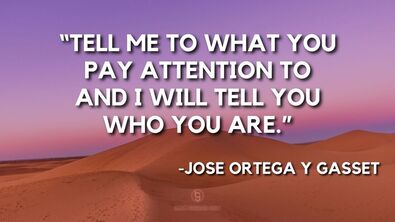
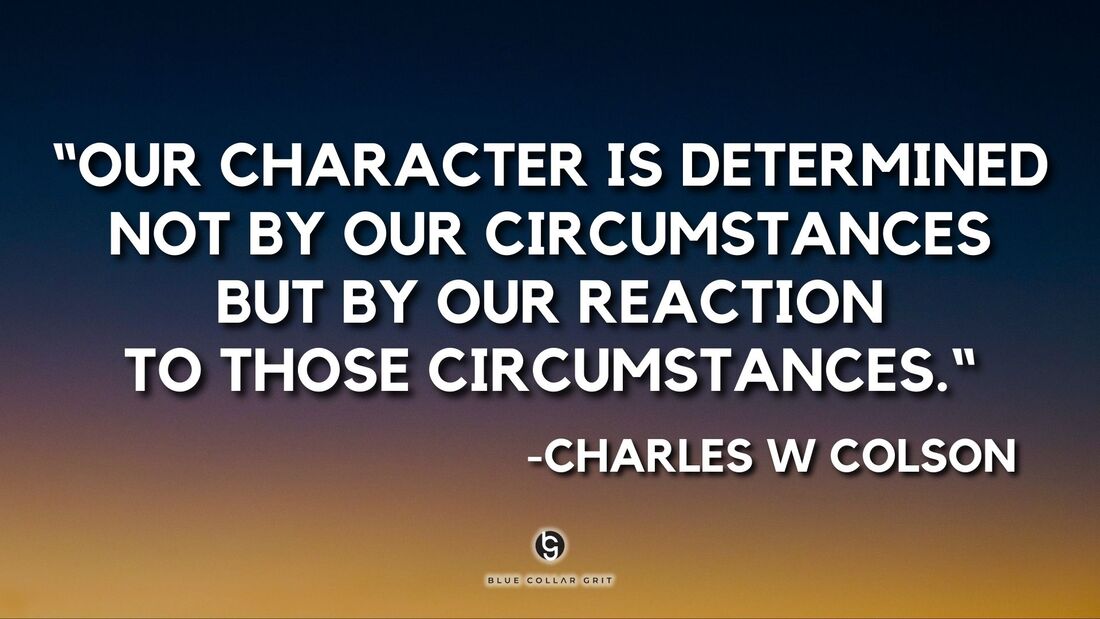
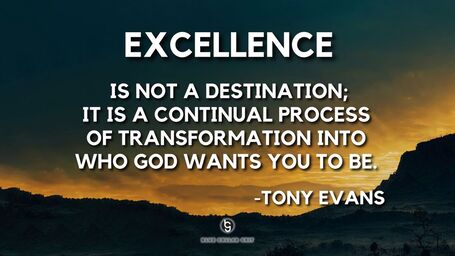
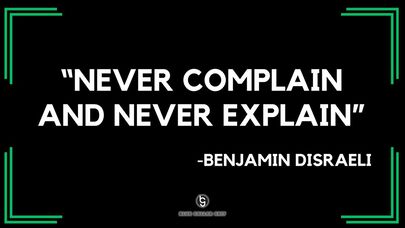
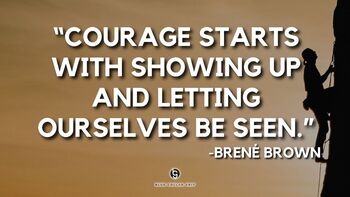
 RSS Feed
RSS Feed